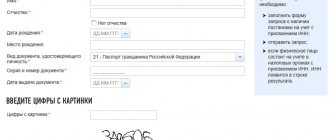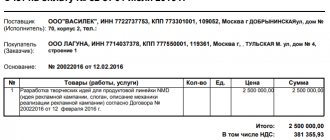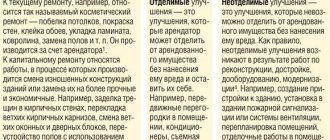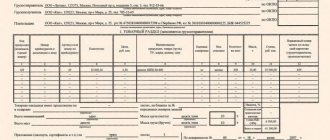Paper Basics
Undertaking not to leave and proper behavior is an official document that is given in writing to the following persons:
- suspects;
- accused.
According to Article 102 of the Code of Criminal Procedure of the Russian Federation, the person thus guarantees that:
- Will not leave his place of residence, regardless of whether it is temporary or permanent, without first obtaining permission from the judge in charge of the case or the prosecutor who is involved in the investigation of this crime.
- Will appear for interrogations and in court within the specified period in accordance with the received summons or subpoena.
- Will not interfere with the investigation in any way. For example, destroying evidence of guilt, threatening witnesses or victims.
It is often used if the person has not previously been brought to criminal liability, and the crime itself is of medium or low severity.
It is considered one of the mildest measures of restriction of freedom. Witnesses are not required to sign their own recognizance, but they may be required to obligately appear in court.
Grounds for issuing a document
Subscription is given when the investigation has concerns that the suspect:
- He will leave the city in order to escape justice.
- Will continue to break the law and commit crimes.
- Will threaten persons participating in this investigation - witnesses, victims. Read more about the punishment for threatening physical violence here.
- He will destroy evidence of his guilt and interfere with the investigation to the best of his ability.
Issuance procedure
Only the competent authority has the right to issue a subscription. This may be a prosecutor or a judge conducting the trial, and in rare cases, traffic police and police officers. The document is drawn up and issued in the following order:
- According to Article 101 of the Code of Criminal Procedure of the Russian Federation, the component person draws up the text of the subscription, which indicates the elements of the crime (link to the article of the Criminal Code of the Russian Federation).
- The citizen must be informed that this measure is applied to him.
- An authorized person explains all the nuances and conditions specified in the paper.
If the person issuing the receipt has not done so, you have the right to refuse to sign the document until its essence is explained to you and any questions you may have regarding the document are answered, for example, about the validity period of the subscription, liability for violation or lifting of the prohibition if necessary . - The citizen signs the document in the presence of a prosecutor or judge, or other person who has decided on the need to apply this measure.
If the subscription is given to a minor, then the presence of parents is required; in their absence, guardianship authorities or guardians.
Issuing algorithm
Let's look at the stages of issuing such a restriction:
- A decision is made not to leave a particular person.
- The document itself is drawn up. It will necessarily indicate the type of crime and the reasons why the person’s freedom of movement is limited.
- The decision made is announced to the person.
- The entire text of the document is explained to the person in detail. If this is not done, the suspect or accused may refuse to sign it.
- The person is explained the instructions for challenging the adopted decision.
- Signing the document. If the suspect or accused is a child under 18 years of age, he must do this in the presence of his parents or guardians.
If a person refuses to sign the act, then a more serious preventive measure may be taken against him.
This is important to know: Sample application for refund of loan insurance
Drawing up and sample document
The document has a unified form approved by law.
The paper form was approved by the Judicial Department of the Supreme Court of the Russian Federation on April 29, 2003, by order No. 36. To fill out, use form No. 41. form for undertaking not to leave and proper behavior in .doc (Word) format.
The document has the following structure:
1. The title of the document is indicated at the top center.
2. Below, on the left, is the name of the city.
3. The date of preparation and signing is indicated on the right.
4. Next comes the main text of the document, written in the first person. It states:
- FULL NAME. the person who gives the receipt;
- residential address in a given locality, even if it is not permanent, but temporary;
- contact phone number for communication.
5. Standard text, which states that the citizen will not change his place of residence or leave the point until the verdict is passed.
6. The name of the locality is indicated.
7. Below is a reference to the article number of the Criminal Code of the Russian Federation, in accordance with which the criminal investigation was launched.
8. At the end it is indicated that if a person violates at least one of the points of the document, in particular, leaves his place of residence, then competent persons have the right to apply other measures of restriction of freedom under Articles 97, 99 and 110 of the Code of Criminal Procedure of the Russian Federation.
9. At the bottom of the document is the signature of the citizen who gives a receipt.
The document is transferred to law enforcement agencies for storage. You have the right to request a copy of the subscription so that in the future, for example, you can present it at your place of work if you are sent on a business trip.
Sample of a completed recognizance form on recognizance and proper behavior in .docx format (Word)
Limitations in use
Subscription does not apply to all individuals. Thus, they do not use it for citizens if the investigation is not sure that the subscription will not be violated. In this case, it is considered more appropriate to choose another, more strict, measure of restriction of freedom. For example, this is house arrest using a special bracelet or detention and placement of a citizen in a pre-trial detention cell. It is also inappropriate to apply this measure to citizens whose work involves travel or who do not have the opportunity to appear on their own when called by a prosecutor or judge. This category includes:
- Truck drivers, since their work involves long trips.
- Conductors working on long-distance trains.
- Diplomatic couriers.
- Persons undergoing compulsory military service and living in barracks during their service. Despite the fact that their work is not related to travel, they cannot leave the unit without the permission of the head of the unit and appear at the request of the investigation.
Often this measure is not applied to persons who do not have permanent or temporary registration and who are located in a populated area:
- Business trip.
- On sanitary-resort treatment.
- Visiting relatives.
This is due to the fact that a person has a limited time allotted to stay in a given place. Thus, not everyone will agree to have a relative live indefinitely and maintain him during the investigation. A trip to a sanatorium can also end much earlier than the trial is held.
Validity periods
According to the law, the subscription does not have a clearly defined validity period. But when registering a subscription, the investigator himself is obliged to indicate for what period the paper is issued. Two main options are being considered:
- Until the completion of the preliminary investigation in the open case.
- During the investigation of the crime and subsequent trial.
These time limits apply only to those accused of a crime.
A different legal norm applies to suspects. Restriction of freedom for such persons is possible for a period of 10 days. After the expiration of the specified period, according to Article 100 of the Code of Criminal Procedure of the Russian Federation, executive bodies are obliged to either remove the restriction of freedom from the person or bring charges against him. As soon as the 10-day period has expired, the suspect must contact the investigator, prosecutor or judge with a request to cancel the subscription and issue a document confirming this action. It is highly not recommended to leave the city after the specified period without first receiving a paper in hand - confirmation of the lifting of the ban on leaving the locality.
You must keep the document you receive with you at all times, especially if you are leaving the city. Otherwise, you may be accused of violating the subscription, since today law enforcement agencies still have an imperfect system, and data on the cancellation of the preventive measure may simply not be entered into the system.
The essence of a recognizance not to leave
According to this document, the freedom of action of a citizen is temporarily limited. All this is explained in the corresponding document; it describes in detail the list of actions that are prohibited for a specific person.
This is important to know: Loan interest repayment period
Once the subscription is drawn up, it is reinforced to the cause. The copy itself is given to the prosecutor. The accused or suspect is also given this document. They must tell him about all the consequences in case of violation of the conditions and requirements.
A short list of actions for a person with limited freedom of movement looks like this:
- Visit the police station after receiving notification within a specific period.
- Do not leave your place of residence.
- Do not interfere with the investigation of a criminal case.
Violation of these requirements may lead to more serious consequences.
Violation
It is considered a violation of the subscription to travel outside the locality without first obtaining permission from the prosecutor or judge.
Violation of this obligation leads to a tightening of restrictions on freedom. A citizen may end up under house arrest or in prison. In addition, this circumstance may be taken into account during the trial, which will not work in favor of the defendant. If there are serious circumstances, a person has the right to contact an investigator or a judge, depending on the stage of the investigation, and receive permission to leave the locality for a certain time. To do this, you must draw up a written statement stating the reason for the trip and its duration. If the responsible person considers the specified reason to be valid, he will issue permission for the person to leave the locality.
Lawful violation of requirements
Does a person with mobility restrictions have the right to move to another locality?
No. But if such circumstances arise, he must submit a petition to the appropriate authority. The request must include the following information:
- Specific dates of absence.
- Grounds for leaving your place of residence.
- Facts confirming the legality of forced departure.
Then a decision will be made. If it is positive, then the citizen will be able to leave for another city, but upon arrival he must register at the police station. If this is not done, then such actions can be considered an attempt to escape.
Here you can also ask for another preventive measure, for example, to appear on demand. In this case, he has the right to visit other cities and leave the country without restrictions.
This is important to know: Consumer Rights Protection Law: collection of penalties
Video “Undertaking not to leave”
In a short video, the investigator gives a brief description of this measure, as well as advice on how to obtain permission to leave, and what threatens a person in case of violation of a previously given obligation: Undertaking not to leave is the mildest measure of restriction of freedom, which applies to citizens who either are suspected of committing a crime or are accused. The document is issued for the duration of the investigation and trial. It allows a citizen to ensure the maximum available freedom of movement within a certain locality or city or region.
The concept of the term “undertaking not to leave”
Article number 102 of the Criminal Code of the Russian Federation states that recognizance not to leave is a preventive measure chosen for a certain person during the investigation of a criminal case.
The meaning of this document is to limit the actions of a person, namely:
- Do not leave your place of residence. The address of residence is indicated by the citizen in the subscription independently. He is obliged to report all movements to the relevant authorities.
- The person undertakes to appear at the police station when summoned at the appointed time and on a specific date.
- The person must not interfere with the investigation of the initiated case.
- The suspect or accused should not put pressure on those persons involved in the investigation of the case (victims, experts, relatives and others).








